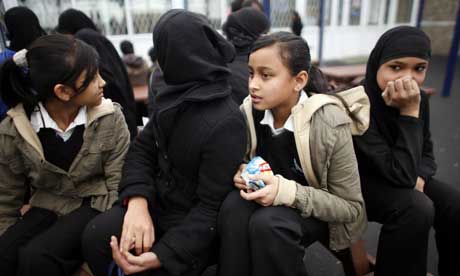I missed this earlier in the week, but just in case anyone else hasn't seen it there's a good
interview with Alan Moore, author of Watchmen, From Hell & the League of Extraordinary Gentlemen on the the Guardian website.
The sense that I got of Moore from the interview was that he's got a lot more integrity than most.
The interviewer, Steve Rose, notes that on the day he met him, Moore had turned down interviews with Time and CNN, because he was too busy getting ready for a charity gig at his local pub.
It might sound like arrogance, given that
everyone's talking about Watchmen at the moment, but it makes sense when you consider that Moore has done his best to
avoid being associated with film, right down to assigning his share of the profits to Dave Gibbons, the artist with whom he originally wrote the
graphic novel.
He told Rose, "I am aware of the immense power of absence. I'm not being completely disingenuous here. Of course I'm aware it doesn't hurt my reputation, but I'm not playing hard to get as some publicity ploy. I'm genuinely busy with stuff that is really important to me."
I can understand his distancing himself from Watchmen, and all the other adaptations of his graphic novels - they haven't been great have they? From Hell, V for Vendetta and The League of Extraordinary Gentlemen weren't actively bad films, but they aren't that good either and they pale into insignificance when you compare them to the graphic novels they are based on.
Moore makes the point to Rose, "There is something about the quality of comics that makes things possible that you couldn't do in any other medium. Things that we did in Watchmen on paper could be frankly horrible or sensationalist or unpleasant if you were to interpret them literally through the medium of cinema. When it's just lines on paper, the reader is in control of the experience – it's a tableau
vivant. And that gives it the necessary distance. It's not the same when you're being dragged through it at 24 frames per second."
He's got a good point - the medium is an incredible one and provides an experience to its readers that it's hard to improve on, so why try? Is trying to turn a graphic novel or a comic into a film a futile exercise? You've got the words and the pictures, what else do you need? However, I do love the film
Sin City, as an exception to the rule, because it looks so incredible - it feels like Frank Miller's drawings have started to move on the pages (a bit like that A-Ha video - which is an inappropriate comparison, I know).
Bearing in mind what Moore thinks about the power and possibilities of his medium, I'm intrigued to see his new offering
Lost Girls, which is porn in graphic novel form, illustrated by his wife Melinda
Gebbie.
"We felt we could reclaim and redefine what pornography was, and we deliberately chose to use that word. We didn't want to hide behind 'erotica' – because it's not etymologically accurate for one thing, and I'm very fussy about that kind of stuff, and there's a class element to it.
Pornos graphos – drawings or writings of wantons – that will do," Moore tells his interviewer.
Moore did his research too, reading feminist theory and analysis of pornography - and it's refreshing to hear someone call porn porn, but a big task to try and reclaim it, but if there's a medium in
which it can be done, then why not the graphic novel, and if there's a author to do it, why not Alan Moore?
















 t Little Black Sambo? Jesus Christ Google! That's appalling.
t Little Black Sambo? Jesus Christ Google! That's appalling.

